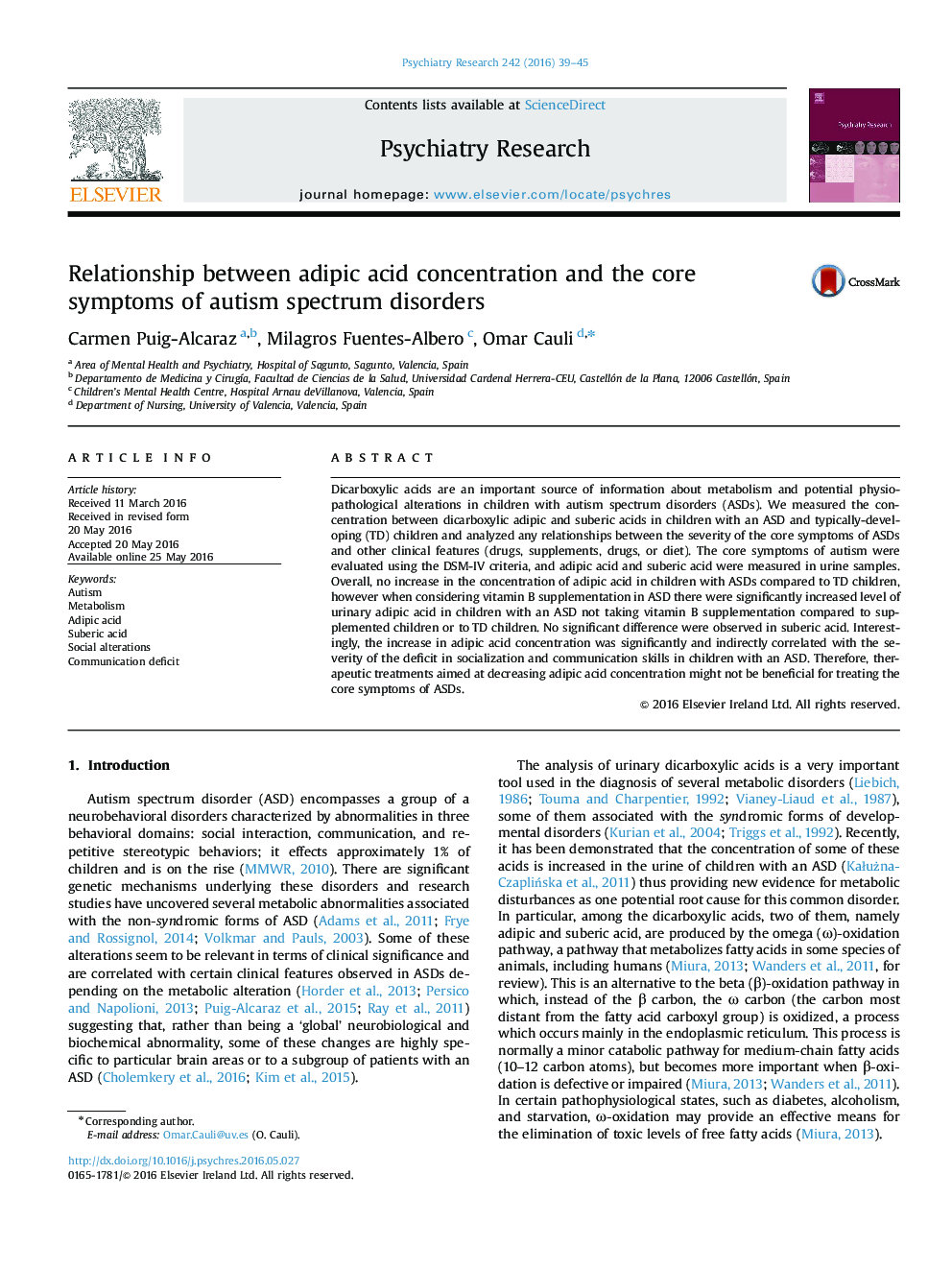| Article ID | Journal | Published Year | Pages | File Type |
|---|---|---|---|---|
| 6812907 | Psychiatry Research | 2016 | 7 Pages |
Abstract
Dicarboxylic acids are an important source of information about metabolism and potential physiopathological alterations in children with autism spectrum disorders (ASDs). We measured the concentration between dicarboxylic adipic and suberic acids in children with an ASD and typically-developing (TD) children and analyzed any relationships between the severity of the core symptoms of ASDs and other clinical features (drugs, supplements, drugs, or diet). The core symptoms of autism were evaluated using the DSM-IV criteria, and adipic acid and suberic acid were measured in urine samples. Overall, no increase in the concentration of adipic acid in children with ASDs compared to TD children, however when considering vitamin B supplementation in ASD there were significantly increased level of urinary adipic acid in children with an ASD not taking vitamin B supplementation compared to supplemented children or to TD children. No significant difference were observed in suberic acid. Interestingly, the increase in adipic acid concentration was significantly and indirectly correlated with the severity of the deficit in socialization and communication skills in children with an ASD. Therefore, therapeutic treatments aimed at decreasing adipic acid concentration might not be beneficial for treating the core symptoms of ASDs.
Related Topics
Life Sciences
Neuroscience
Biological Psychiatry
Authors
Carmen Puig-Alcaraz, Milagros Fuentes-Albero, Omar Cauli,
